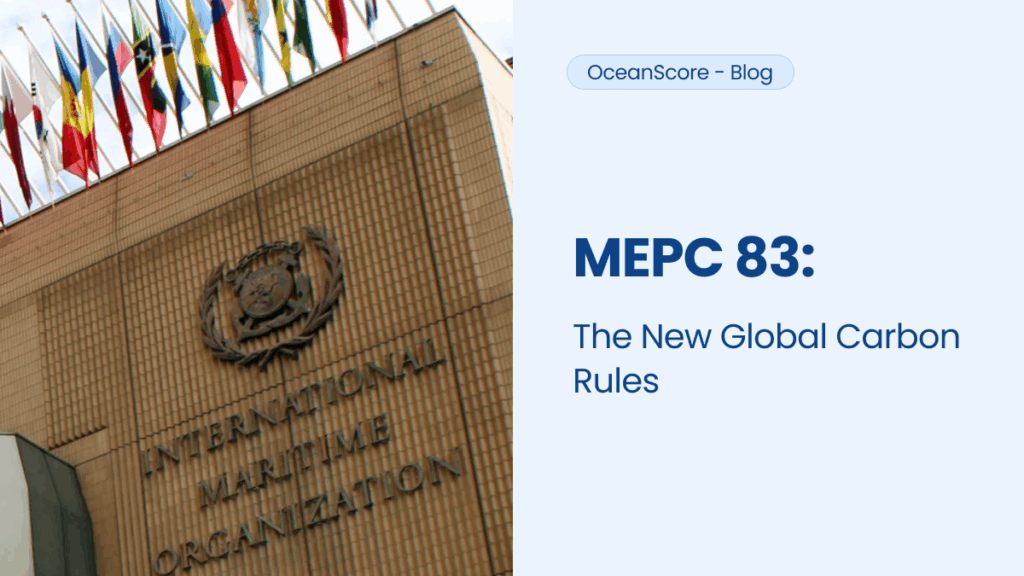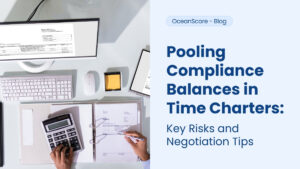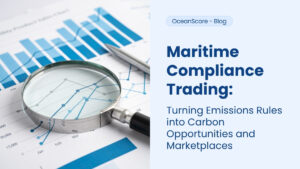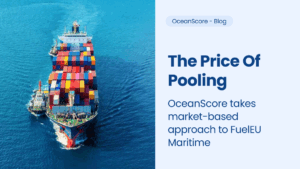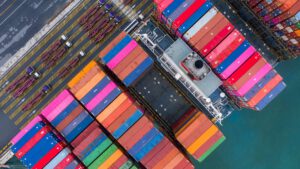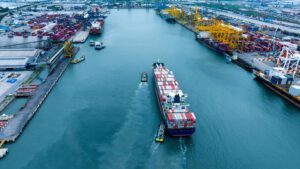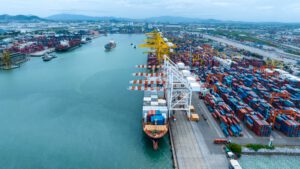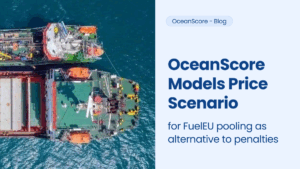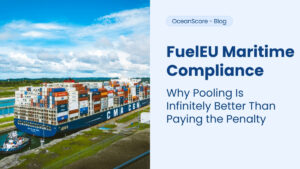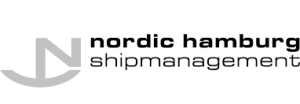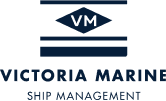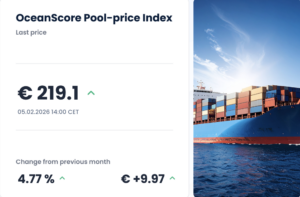FuelEU allows for pooling compliance deficits and surpluses as one way to secure compliance. OceanScore analyses continues to show that pooling is a viable strategy. Pooling – considering all costs including EU ETS and different bunker costs and LCVs – currently appears to be comparable and a bit cheaper than bio fuel based compliance strategies and certainly significantly cheaper than paying penalties.
Surprising Price Trends
Currently, poolprices are (surprisingly) low. €200 +/- per tonne of CO2e are being quoted for larger volumes on OceanScore’s FuelEU Pooling Marketplace even if they do not reflect the full cost of generating compliance surpluses through using bio fuels. The simple reason for these low pooling prices are the expected oversupply of compliance surpluses – beyond what is needed to compensate all the deficits currently generated – in combination with the fact that many of the compliance surpluses are generated by LNG and LPG carriers at zero additional fuel costs.
The Straightforward Reality of Pooling
Pooling actually is very simple: Once compliance balances have been verified by March 31 of any year, compliance pools can be registered in Thetis by a simple tick during the next 30 days until April 30. One more simple pool check by a verifier, that’s it.
Avoiding Unnecessary Complexity
So why make it unnecessarily complex? Tokenization. Block Chain. Complex KYC – Know your Customer – and onboarding processes. Shipping – especially 3rd party management – is a tough, low margin business. These “artificial” complexities are not necessary. They add no benefits and only complicate and cause unnecessary costs.
What to watch out for?
- Anything complex that is not intuitively necessary – it’s probably not needed. And it probably adds cost that is not needed either. Avoid it
- Exclusive deals. We have seen attempts to lock shipping companies into exclusive deals that do not allow them to pool with anyone else but the pool provider. Avoid it. The pool prices in these structures appear to be really unattractive – once someone is locked in.
- High one-off costs and pool management fees: Pooling should be simple, not expensive. All it takes is you agreeing with someone to flag your pool in Thetis. Just agree with another DOC holder you know to pool – and then do it. Zero extra cost. Just find that partner and do the deal. Once. And next year decide again – it might be the same partner. Why not.
- Missing liquidity: Everyone in the pooling market is a start up. No one has done this before. So make sure there is a solid “installed base”, a credible number of offers that could be your counterparty. We have seen a lot of talk – often not backed up by pool places really reliably offered.
How OceanScore Can Help
So, if someone tries to sell you high fixed annual cost, high pool management fees, multi year exclusive pool solutions – ignore it. Don’t be tricked by smart language around tokenization, know your customer solutions, pool verifications – none of that is needed. There will be enough low cost, straight forward pools in the market.
Doubt this? Want to avoid the risk of being left hanging dry? Well, just reach out to OceanScore. Our FuelEU Pooling Marketplace does what is needed and has been build with the support of a large number of shipping companies and compliance surplus providers: Simple, straight forward and low / no cost. And certainly not exclusive. We want to convince you, not corner you.
Frequently Asked Questions
Pooling allows shipping companies with compliance surpluses to transfer these to companies with deficits. It’s a regulatory mechanism that helps the industry meet FuelEU Maritime requirements collectively rather than individually.
Yes. The FuelEU regulation explicitly allows pooling as a compliance mechanism.
You can register a pool in Thetis between April 1 and April 30, after compliance balances have been verified by March 31.
Exclusive agreements may limit your options and often come with higher costs. It’s best to work with flexible, non-exclusive partners.
There is an expected oversupply of compliance surpluses, particularly from LNG and LPG carriers, which helps keep prices down.
No. These technologies are not required by the regulation and often complicate the process unnecessarily.

